Abstract
Acholeplasma laidlawii A possesses a nicotinamide adenine dinucleotide (NAD)-dependent l(+)-lactate dehydrogenase (LDH) which is activated specifically by low concentrations of fructose-1, 6-diphosphate (FDP). Studies with partially purified enzyme show that the kinetic response to FDP is hyperbolic. The enzyme is inhibited by inorganic phosphate, adenosine triphosphate, and high concentrations of reduced NAD (NADH). Low activity is demonstrable in the absence of FDP at pH 6.0 to 7.2, but FDP is absolutely required in the region of pH 8. FDP causes an upward shift in the optimum pH of the enzyme, which is near 7.2 in tris (hydroxymethyl)aminomethane buffer. Activation of the enzyme by FDP is markedly affected by substrate concentration; FDP lowers the apparent Km for pyruvate and NADH. The affinity of the enzyme for pyruvate is also influenced by H+ concentration. The pyruvate analogue α-ketobutyrate serves as an effective substrate for the enzyme; when it is utilized, the enzyme is still activated by FDP. Reversal of the pyruvate reduction reaction catalyzed by the enzyme can be demonstrated with the 3-acetylpyridine analogue of NAD. The catalytic properties of the A. laidlawii enzyme and the known FDP-activated LDHs which occur among lactic acid bacteria are discussed.
Full text
PDF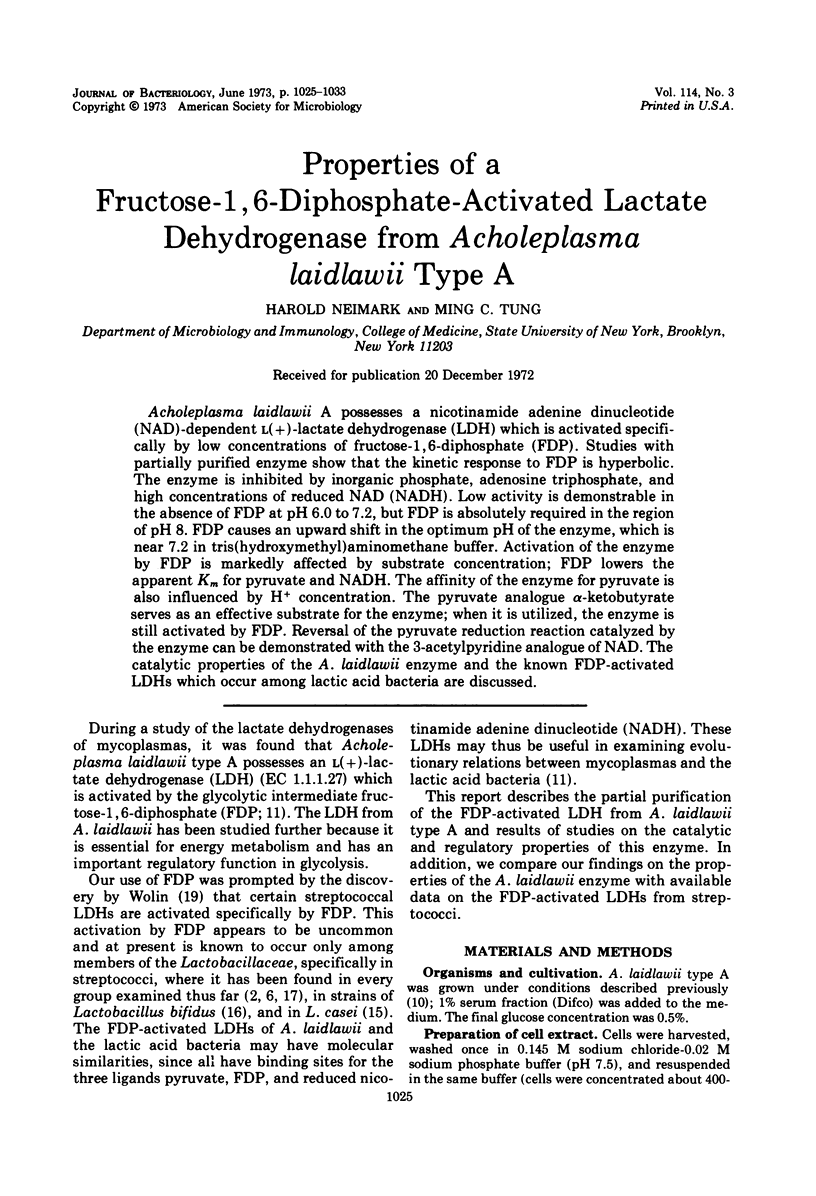
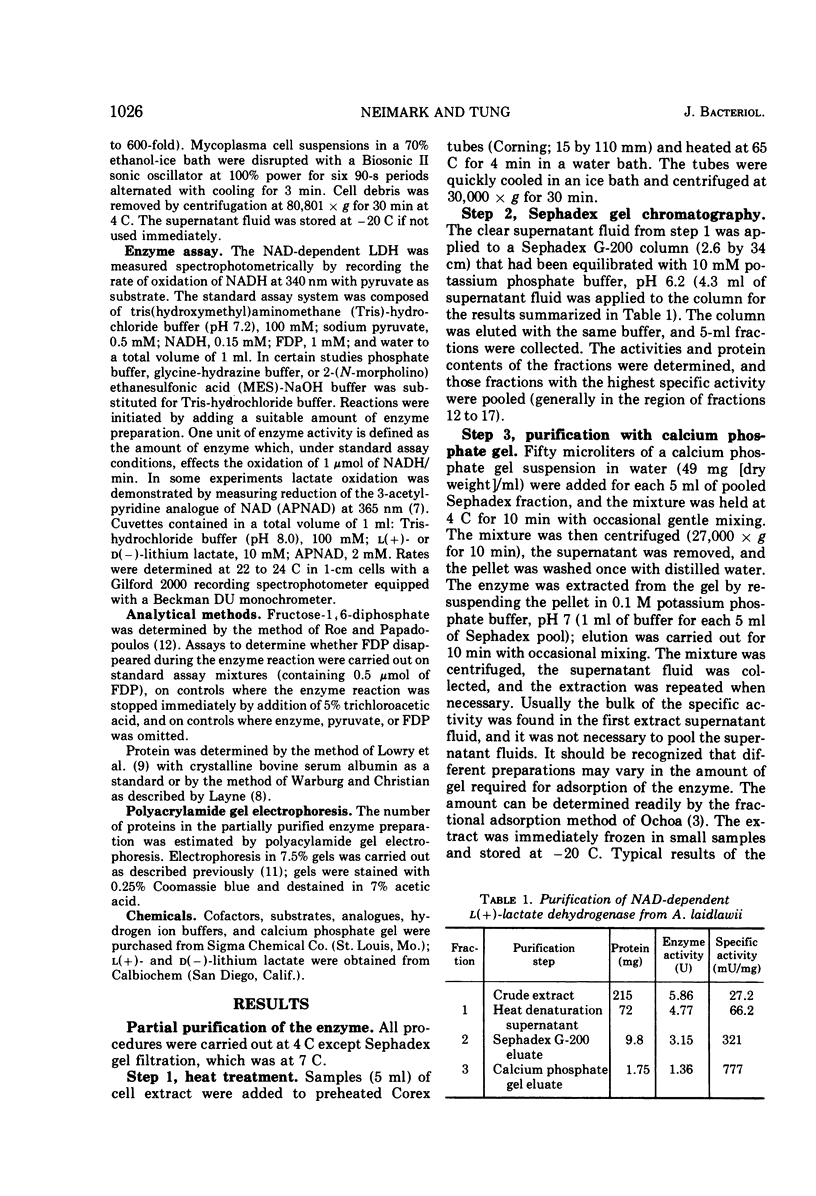
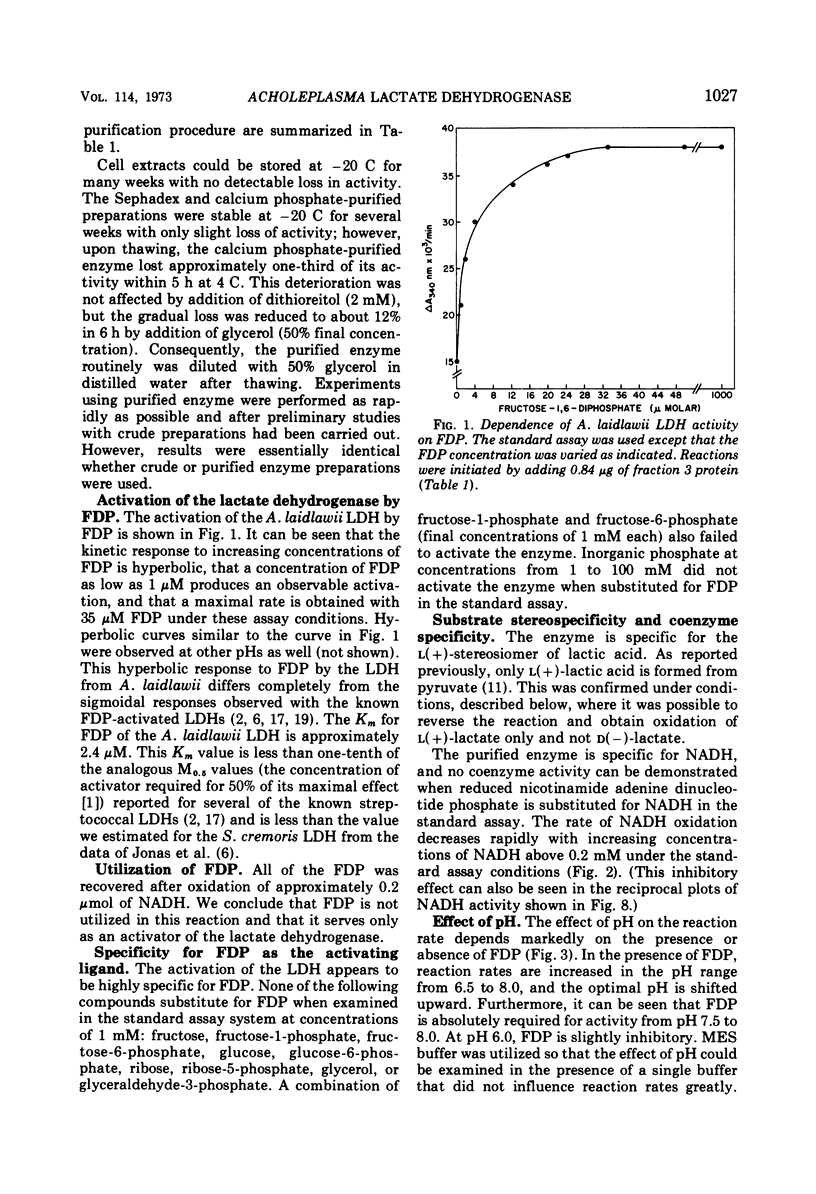
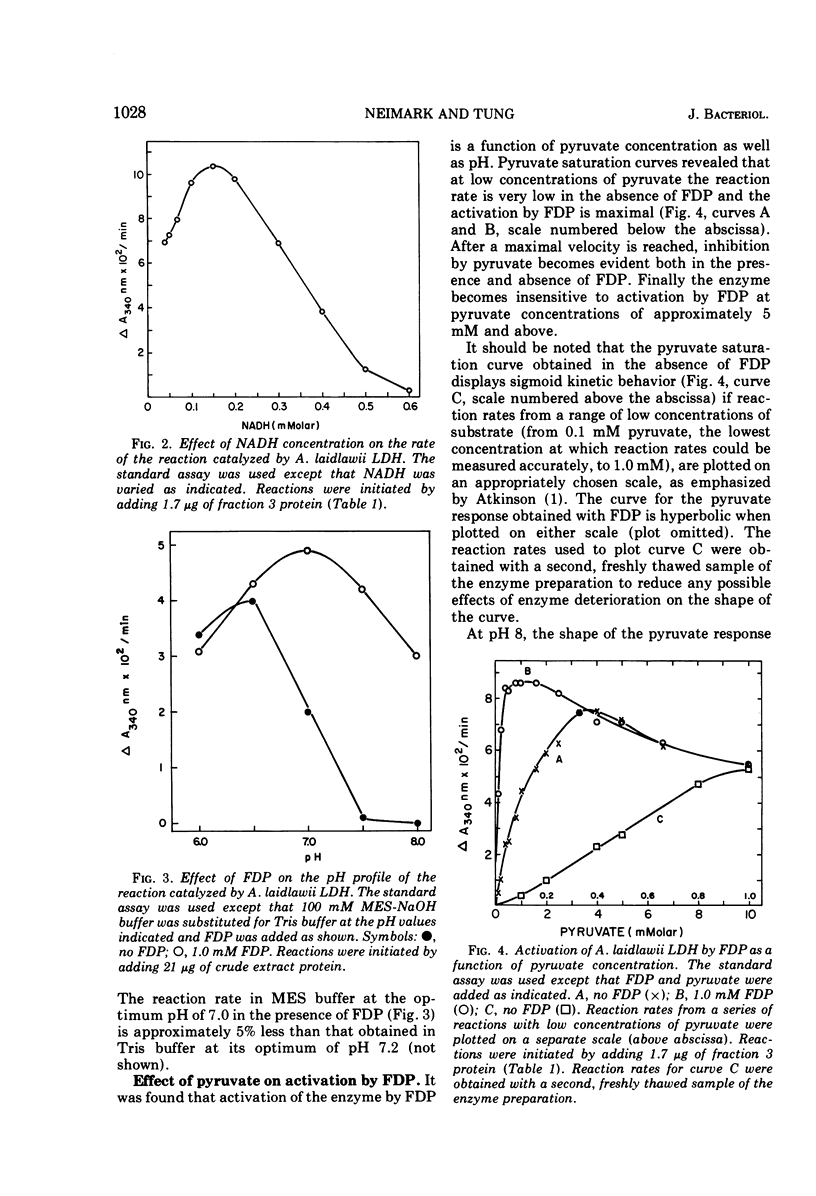
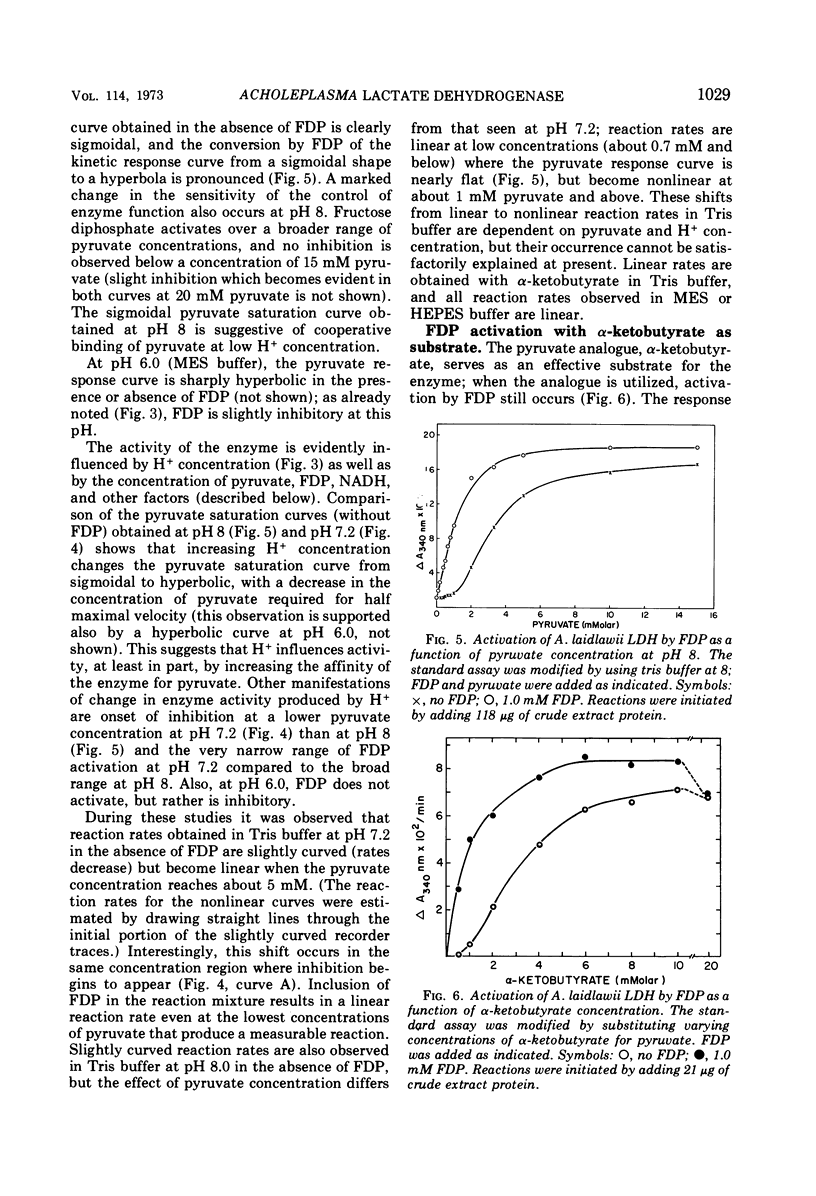
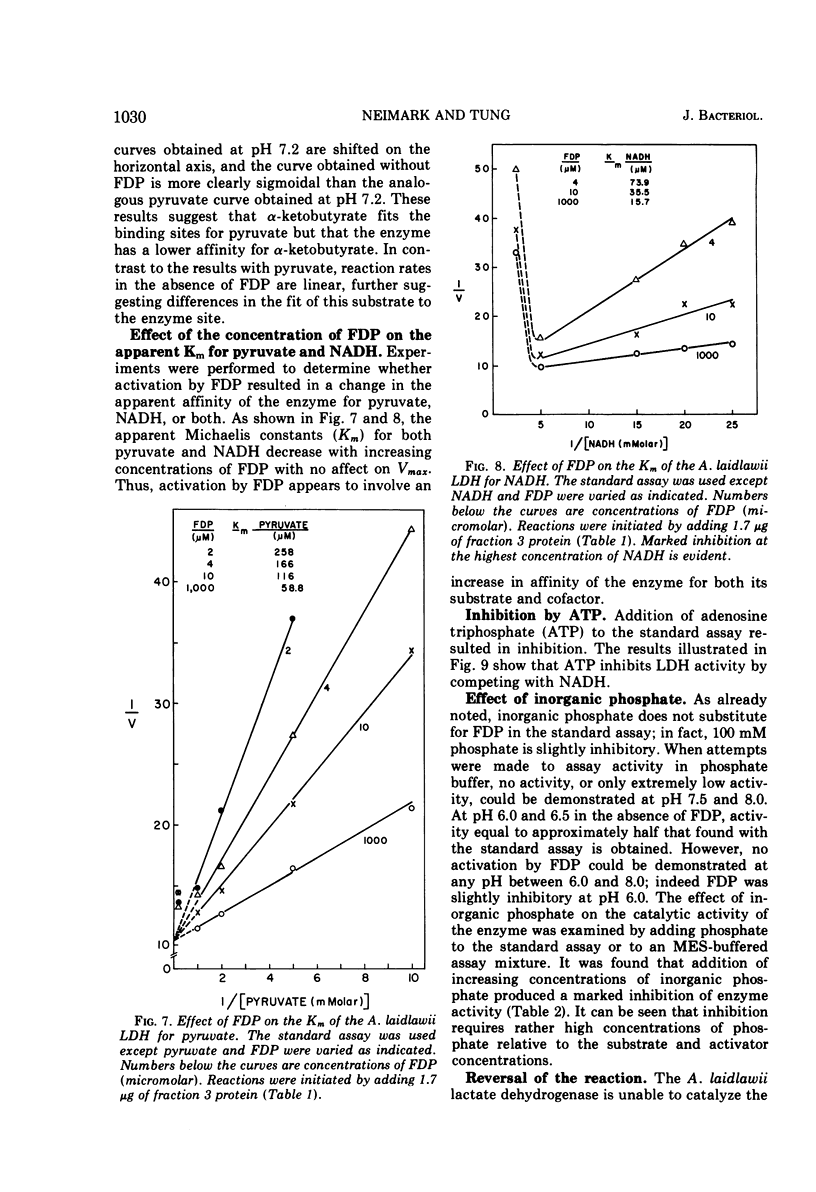
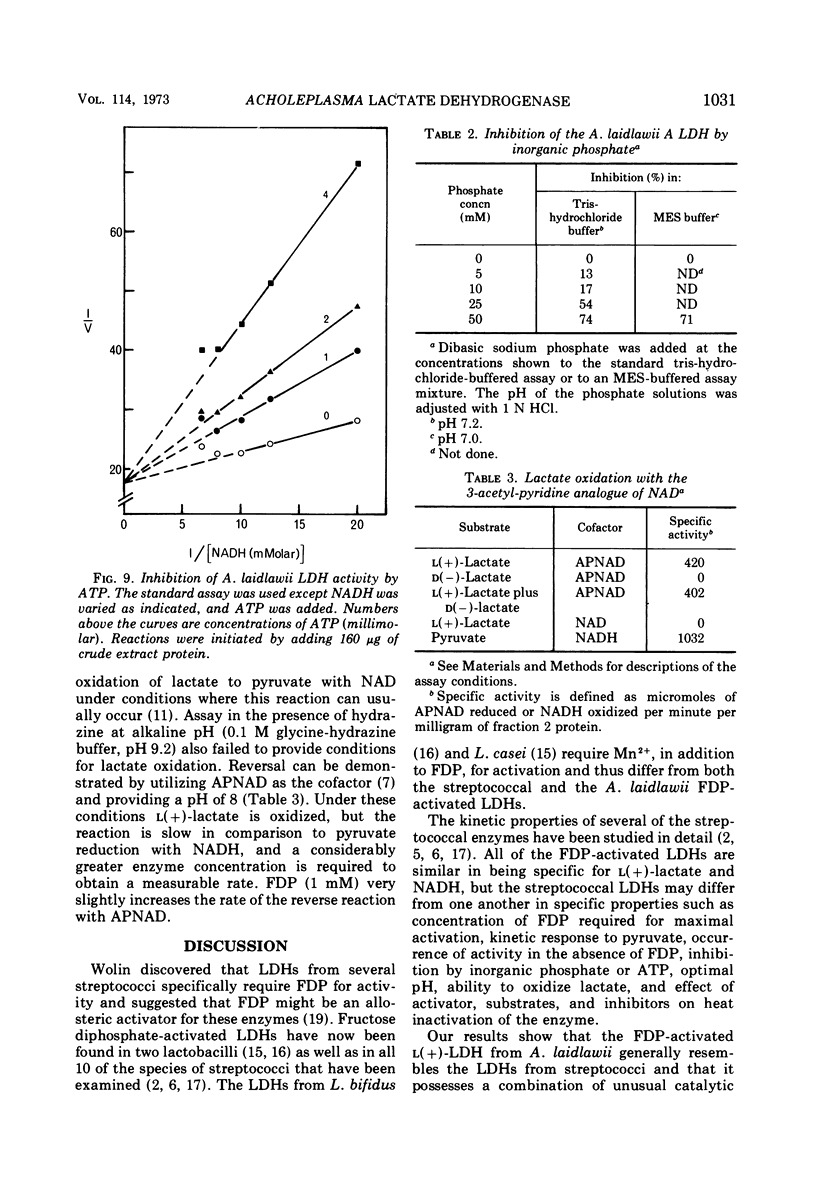
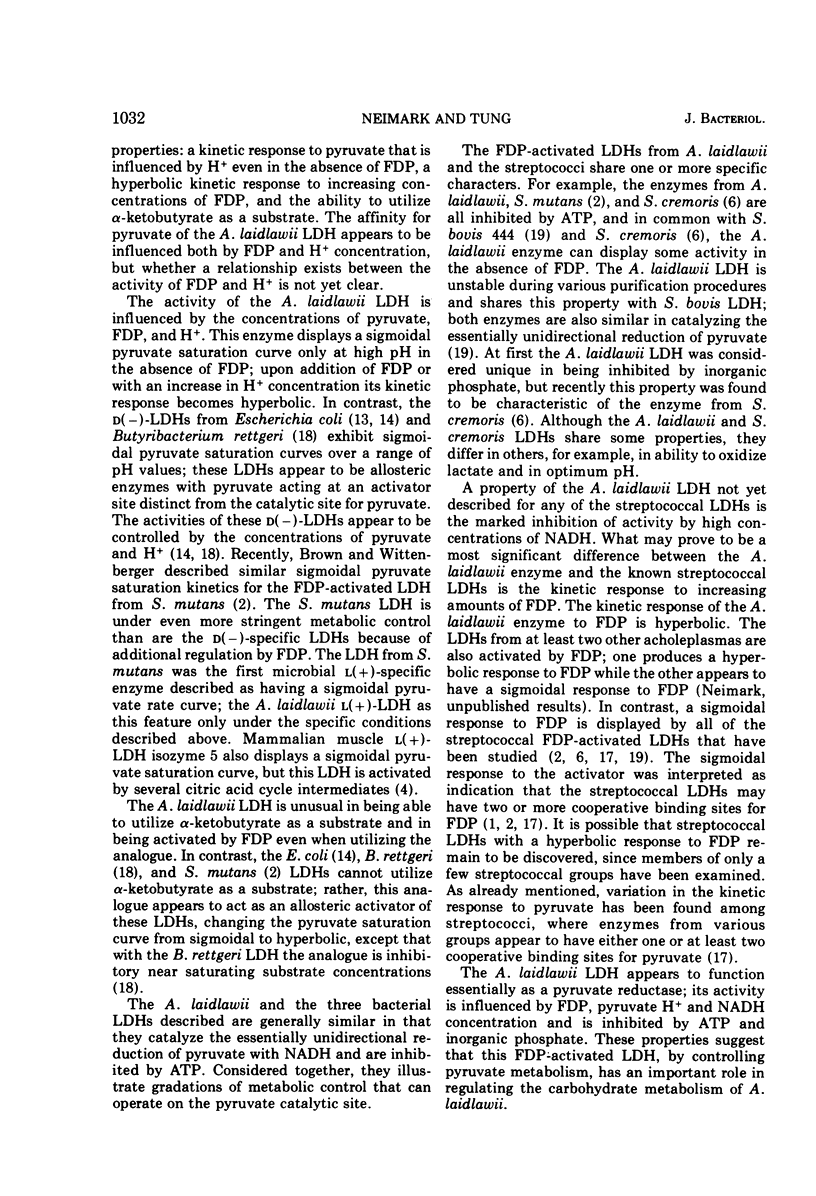
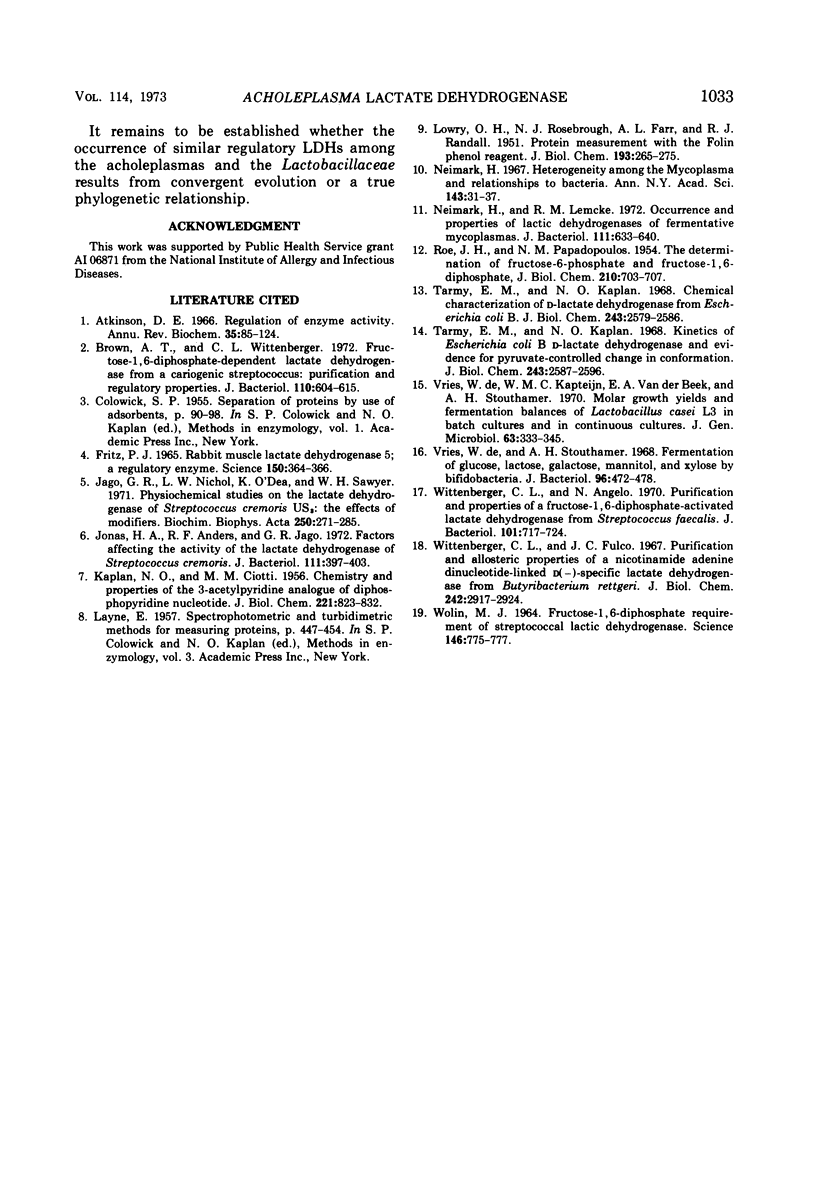
Selected References
These references are in PubMed. This may not be the complete list of references from this article.
- Brown A. T., Wittenberger C. L. Fructose-1,6-diphosphate-dependent lactate dehydrogenase from a cariogenic streptococcus: purification and regulatory properties. J Bacteriol. 1972 May;110(2):604–615. doi: 10.1128/jb.110.2.604-615.1972. [DOI] [PMC free article] [PubMed] [Google Scholar]
- CIOTTI M. M., KAPLAN N. O. Chemistry and properties of the 3-acetylpyridine analogue of diphosphopyridine nucleotide. J Biol Chem. 1956 Aug;221(2):823–832. [PubMed] [Google Scholar]
- Fritz P. J. Rabbit muscle lactate dehydrogenase 5; a regulatory enzyme. Science. 1965 Oct 15;150(3694):364–366. doi: 10.1126/science.150.3694.364. [DOI] [PubMed] [Google Scholar]
- Jago G. R., Nichol L. W., O'Dea K., Sawyer W. H. Physicochemical studies on the lactate dehydrogenase of Streptococcus cremoris US3: the effects of modifiers. Biochim Biophys Acta. 1971 Nov 13;250(2):271–285. doi: 10.1016/0005-2744(71)90184-7. [DOI] [PubMed] [Google Scholar]
- Jonas H. A., Anders R. F., Jago G. R. Factors affecting the activity of the lactate dehydrognease of Streptococcus cremoris. J Bacteriol. 1972 Aug;111(2):397–403. doi: 10.1128/jb.111.2.397-403.1972. [DOI] [PMC free article] [PubMed] [Google Scholar]
- LOWRY O. H., ROSEBROUGH N. J., FARR A. L., RANDALL R. J. Protein measurement with the Folin phenol reagent. J Biol Chem. 1951 Nov;193(1):265–275. [PubMed] [Google Scholar]
- Neimark H. Heterogeneity among the mycoplasma and relationships to bacteria. Ann N Y Acad Sci. 1967 Jul 28;143(1):31–37. doi: 10.1111/j.1749-6632.1967.tb27640.x. [DOI] [PubMed] [Google Scholar]
- Neimark H., Lemcke R. M. Occurrence and properties of lactic dehydrogenases of fermentative mycoplasmas. J Bacteriol. 1972 Sep;111(3):633–640. doi: 10.1128/jb.111.3.633-640.1972. [DOI] [PMC free article] [PubMed] [Google Scholar]
- ROE J. H., PAPADOPOULOS N. M. The determination of fructose-6-phosphate and fructose-1,6-diphosphate. J Biol Chem. 1954 Oct;210(2):703–707. [PubMed] [Google Scholar]
- Tarmy E. M., Kaplan N. O. Chemical characterization of D-lactate dehydrogenase from Escherichia coli B. J Biol Chem. 1968 May 25;243(10):2579–2586. [PubMed] [Google Scholar]
- Tarmy E. M., Kaplan N. O. Kinetics of Escherichia coli B D-lactate dehydrogenase and evidence for pyruvate-controlled change in conformation. J Biol Chem. 1968 May 25;243(10):2587–2596. [PubMed] [Google Scholar]
- WOLIN M. J. FRUCTOSE-1,6-DIPHOSPHATE REQUIREMENT OF STREPTOCOCCAL LACTIC DEHYDROGENASES. Science. 1964 Nov 6;146(3645):775–777. doi: 10.1126/science.146.3645.775. [DOI] [PubMed] [Google Scholar]
- Wittenberger C. L., Angelo N. Purificationa and properties of a fructose-1,6-diphosphate-activated lactate dehydrogenase from Streptococcus faecalis. J Bacteriol. 1970 Mar;101(3):717–724. doi: 10.1128/jb.101.3.717-724.1970. [DOI] [PMC free article] [PubMed] [Google Scholar]
- Wittenberger C. L., Fulco J. G. Purification and allosteric properties of a nicotinamide adenine dinucleotide-linked D(-)-specific lactate dehydrogenase from Butyribacterium rettgeri. J Biol Chem. 1967 Jun 25;242(12):2917–2924. [PubMed] [Google Scholar]
- de Vries W., Kapteijn W. M., van der Beek E. G., Stouthamer A. H. Molar growth yields and fermentation balances of Lactobacillus casei L3 in batch cultures and in continuous cultures. J Gen Microbiol. 1970 Nov;63(3):333–345. doi: 10.1099/00221287-63-3-333. [DOI] [PubMed] [Google Scholar]
- de Vries W., Stouthamer A. H. Fermentation of glucose, lactose, galactose, mannitol, and xylose by bifidobacteria. J Bacteriol. 1968 Aug;96(2):472–478. doi: 10.1128/jb.96.2.472-478.1968. [DOI] [PMC free article] [PubMed] [Google Scholar]


